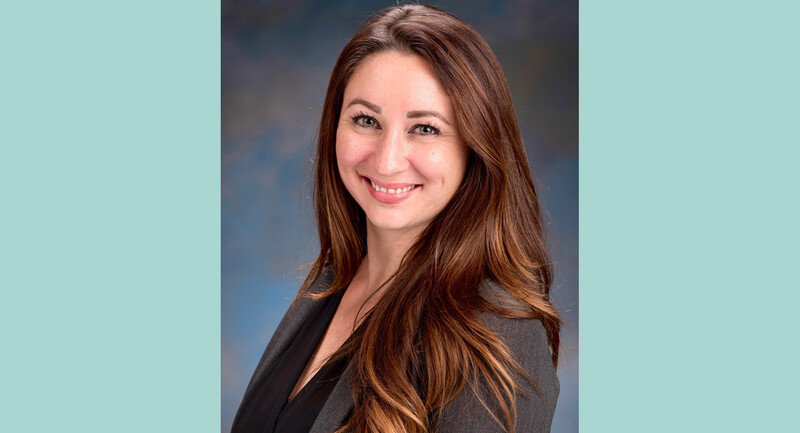October 1, 2022
•
5 min (est.)•
Vol. 80•
No. 2It’s About Skillsets and Support, Not Sainthood
To fix the teaching profession’s reputation, why don’t we stop expecting teachers to “love” the job?

An education professor of mine used to say, "If you don't truly love teaching, get out before you harm the children." He'd wax on about how he used to bring food for students who didn't have enough at home, how he stayed late most days because students needed somewhere to be, and countless other examples of sacrifice.
This level of expectation was reiterated in my first teaching job. My principal welcomed us with exhortations to love the school, love the students, and passionately follow our calling as teachers. Love, it seemed, was requisite to being a good teacher.
The thing is, I was miserable. That first year, I tried to explain to my friends and family how wretched I felt, how trapped in an impossible situation, how unequipped to meet the demands heaped upon me. I would explain that I had a front row seat to everything that was wrong with American society, but was powerless to do anything about it. I'd tell them stories of students coming in with needs that I simply couldn't meet, wracked by poverty, violence, and trauma and behaving in ways most of my acquaintances couldn't imagine. I vividly described my meager classroom, which could only be upgraded if I dipped into the wages of the two jobs I worked to pay the rent. The district had no curriculum, no training, and very little hope.
Everyone looked at me like I was a monster.
Teachers are supposed to love teaching. That's what they do. It's a calling, a life purpose, a fulfillment of all one's dreams. If you don't love teaching, it's because there is something wrong with you, and you should vacate the classroom immediately. This cultural attitude has proliferated in the years since my first job, most poignantly during the pandemic, when teachers were praised for everything from risking their physical safety to working around the clock to reach students remotely. "Teachers are such saints," people would say. "Good thing they love what they do."
The longer I stayed in education, though, the more I realized that the "love of teaching" trope is a cultural illusion upon which we have built a teetering system. That system has been happy to press the advantage, relying more and more on the unpaid labor of presumably passionate employees. Teachers must be therapists, doctors, psychologists, providers of food and supplies—and they must be grateful for the opportunity. Cultural references reinforce this message; one need only watch the many movies and TV shows in which an impassioned, if unconventional, teacher makes a difference in students' lives by loving her job to the point of self-sacrifice.
This hagiographic vision of teachers has mangled the profession. Rates of teacher attrition indicate that the misery I felt was hardly unique—even veterans can no longer sustain the myth of the blissfully sacrificial teacher. Teachers bold enough to call attention to the very real problems in education have been treated as sniveling malcontents for years, and yet with today's labor shortage, they are in a position to leave the profession altogether if they want, and many are doing just that.
Conflating passion and merit in teachers ultimately harms students. "Passionate" teaching is not the same as skillful teaching, and our love of the saint obscures our view of the skill. When school leaders know a teacher truly cares about students, it can be easy to overlook weak instruction—in fact, nothing is harder than dismissing an enthusiastic, warm, but ineffective teacher. In other professions, quality of work forms the basis of evaluations, both formal and otherwise. No one would think twice about a carpenter fired for shoddy construction, or a pilot dismissed for a crash landing. When you find yourself on the operating table, you care whether your surgeon has the skill to perform your triple bypass properly. You care less whether she feels existentially fulfilled by doing it.
Even those willing to distinguish between passion and skill might incline to the view that loving a job can make a person better at it. Certainly, it can. This, however, is hardly a guarantee, and in the case of teaching—a job that is harder and harder to love—we must avoid that assumption. When teachers express discontent at poor compensation, broken systems, and debilitating pressure, we must stop responding with, "But you love it, right?" We must stop using presumed love of teaching as a blank check, and instead pay cash to set up a system that works.
COVID-19 has made the harsh realities of education visible to the public; a typical Twitter scroll reveals a story about pandemic learning loss, a video of parents protesting at a school board meeting, and an exposé from a burned out teacher who quit after breaking up yet another fight in the cafeteria. The nationwide teacher shortage has emboldened many to express how unsustainable the profession has become. As every educator knows, these problems existed before the pandemic, yet many are worse now that we're "back to normal." That's why it will be tempting, moving forward, to say "only someone who loves this profession would do it."
That would be a terrible mistake.
Is the solution to hope for a parade of educators so passionate they assume responsibility for an inequitable, under-resourced system? Failing that, shall we bludgeon all newcomers into the familiar tropes of martyrdom, drilling them in happy catch phrases to keep everyone else comfortable? These are rhetorical questions; the cat is out of the bag where teaching is concerned, and neither teachers nor society will believe much longer that educators' passion blinds them to the challenges—even horrors—of the job.
What we need to do instead is build up a generation of teachers who can approach the work as a profession, not just a selfless calling. The industry has made significant strides toward defining, clearly, what good teaching looks like. Consider, for example, the implementation of the Danielson Framework , which articulates proficiency levels across a spectrum of indicators and removes some of the subjectivity in evaluations.
Sainthood is not required for capable instruction. Let's shift the focus instead onto the skills that our students deserve in their teachers. This would break the cycle of guilt felt by overwhelmed teachers—veteran and novice alike—who find themselves disliking their jobs but unable to admit it. It may draw attention to the need for additional social support where teachers simply cannot shoulder any more responsibilities. Most important, it can engender a cultural respect for the profession of teaching. This cultural respect is key, for it may incentivize smart, driven people to enter the profession.
So, how should we talk to and about teachers? The most vital step is a controversial one: we must stop modeling, demanding, and praising a martyr mentality from educators. School leaders should flatly refuse to disparage teachers who commit the cardinal sin of "leaving with the bell" while fawning over those who slave away for hours after school ends. In fact, we need to stop implying that effective instruction hinges on clock time altogether. All educators should stop using "Do it for the kids" as a spur and stop using "I love the kids" as a halo; such accessories are unnecessary distractions, anyway.
Leaders must also reject a martyr mentality for themselves. How many times have I, as an administrator, engaged in the end-of-day standoff, where the last person in her office is clearly the most virtuous, the most capable, the most dedicated, while the first to leave sneaks sheepishly down the hall in a cringing walk of shame? When leaders accept the total effacement of their personal time and interests as a necessary part of the job, they project this mindset onto teachers. Educators might say we want to "work smarter, not harder," but we are often afraid of how we will be perceived if we actually do it. That needs to change.
Let's also start talking about teaching as a profession—especially to those outside the industry. For obvious, misogynist reasons, teaching has historically been regarded as a low-skills job by non-educators, and this is nothing short of an atrocity. The general public rarely hears how very smart and skilled a person needs to be to effectively teach other humans, so let's talk about it over and over until the message sinks in. Let's describe the pedagogical theory teachers incorporate into their lessons, the behavioral psychology they utilize every day, and the mental gymnastics they perform to differentiate for unique learners. If we focus on this when we talk about teaching, our cultural discourse can get into the nuances of the profession and might even lead to a solution more elegant than "Do it for the kids!"
The way we, as a society, talk about teaching is powerful. It can paint a picture in the minds of our community, our students, and even those in the profession. To fix the many issues of morale, attrition, and supply pipelines the industry faces, we must reckon with our own mythology and construct a more sustainable language.






